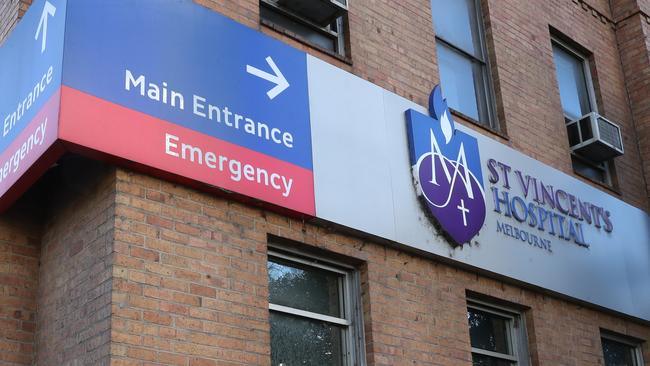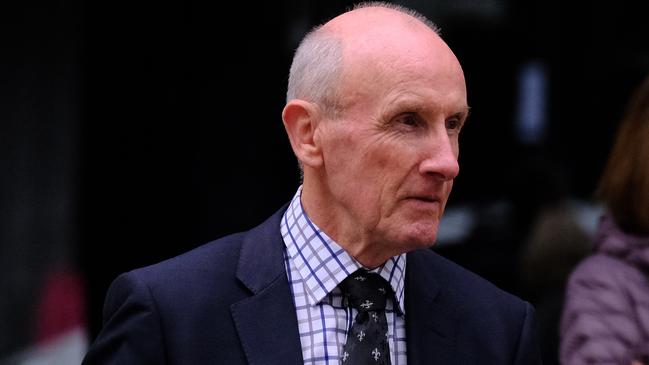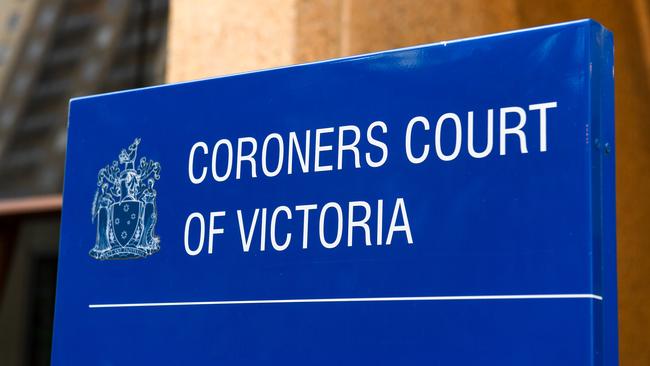Annie O’Brien: Physicians testify at coronial inquest
A pregnant woman would probably have lived if she’d received treatment at the right time, an inquest has heard.
A pregnant woman was more likely than not to have survived if two Melbourne doctors prescribed her antibiotics at the right time, an inquest has heard.
Instead, doctors at Holmesglen Private Hospital and St Vincent’s Hospital did not administer vital drugs in the hours prior to Annie O’Brien’s death of undiagnosed sepsis on August 15, 2017, despite Ms O’Brien presenting with crucial signs of an infection, the inquest heard.
Ms O’Brien was 37 years old and 18 weeks’ pregnant when she attended Holmesglen on August 14 with a temperature of 40, diarrhoea, vomiting, and back pains, and was incorrectly diagnosed with gastroenteritis.
She was transferred to St Vincent’s shortly before midnight after her membrane prematurely ruptured, leading to a miscarriage, and died at approximately 2pm the following afternoon.

The inquest, which began last week, has so far suggested substantial failures in her treatment across the two hospitals, from the incorrect diagnosis, the late administration of antibiotics, an absence of handover notes and a refusal to admit her into intensive care.
Expert witnesses told the inquest on Monday Ms O’Brien should have received antibiotics when she began to complain of back pain at 10:15pm at Holmesglen, and “100 per cent” should have received antibiotics when her membrane ruptured at 11:30pm.
Dr Lucy Bowyer, an obstetrician at Sydney’s Royal Hospital for Women, said it was “uncontroversial” Ms O’Brien should have been administered antibiotics when her membrane ruptured, and said by that stage it should have been clear “infection must have been part of what was going on.”
Dr Bowyer said it was likely Ms O’Brien would have survived if she was correctly diagnosed and treated with antibiotics by Dr Hui Shi at Holmesglen, and was “teetering” at the 50 per cent mark when she arrived at St Vincent’s.

The inquest has heard Ms O’Brien was not prescribed antibiotics by obstetrician Dr Vicky Nott until 2:00am, and they were not administered until 2:45am.
The inquest was told Ms O’Brien’s observations of back pain, which was so strong she needed morphine, persistently high temperature and premature membrane rupture was not symptomatic of gastroenteritis.
The inquest heard last week that Holmesglen emergency doctor Dr Shi, who had been treating Ms O’Brien with these symptoms, was content with the diagnosis of gastroenteritis when she was transferred in an urgent ambulance to St Vincent’s.
Last week, Dr Shi told the inquest Ms O’Brien didn’t appear “really sick”.

Specialist emergency physician Dr David Eddey told the inquest a premature membrane rupture, which occurred at Holmesglen at 11:30pm, is “a concerning symptom” and said it “behoves” physicians to explore other diagnosis.
Dr Eddey’s testimony was echoed by fellow specialist emergency physician Dr George Braitberg, who told the inquiry gastroenteritis was a reasonable diagnosis until 10:15pm, the time Ms O’Brien complained of strong back pain.
The inquest also heard that both Dr Shi and obstetrician Dr Nott, who treated Ms O’Brien when she arrived at St Vincent’s shortly after midnight, shared responsibility for the lack of handover information.
Dr Braitberg said handover information was “on the receiver as well” and described it as a transaction.
Dr Shi and Dr Nott have given vastly different evidence to the inquiry on the question of what was communicated between the pair before Ms O’Brien was transferred.
Dr Shi said she told Dr Nott of Ms O’Brien’s high temperature and that she required an urgent ambulance transfer; Dr Nott denies being told there was any sense of urgency over Ms O’Brien’s condition.
The inquest continues.
